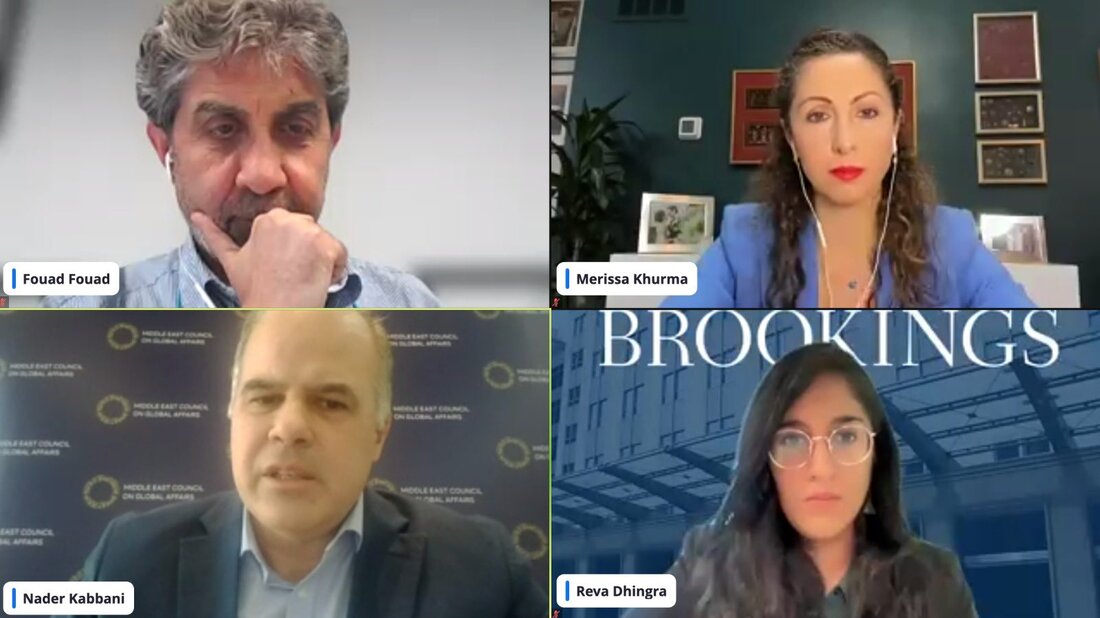|
IFI, in collaboration with the Middle East Council on Global Affairs, held a webinar on “Refugees in the Middle East: Navigating an Uncertain Future” on June 21. The panel included Mideast policy analyst and director of the Middle East Program at the Wilson Center Merissa Khurma, ME Council Affiliate and Post-Doctoral Fellow in the Foreign Policy Program at the Brookings Institution Reva Dhingra, and Chair of the IDRC Forced Displacement Program for the Middle East and IFI University Fellow Fouad Fouad. The event was moderated by ME Council Director of the Governance and Development Program Nader Kabbani. The panel discussed the current state of affairs of refugees in the MENA region, providing insights on the future of the crisis in years to come. Considering the dire sociopolitical dimension in the area, and with growing hostility towards refugees in neighboring and host countries, refugees are being left to fend for themselves through extremely harsh living and work conditions. With the events of the Russia-Ukrainian war escalating, the global community’s attention has shifted from the refugee crisis, which has resulted in a major decrease in funding and a shortage of strategic policies. The panel went over issues surrounding normalization with the Assad regime and its reintegration into the Arab League, raising concerns in terms of Syrian refugees and their possibility of safe return. It also examined the socioeconomic challenges facing host countries, with a particular focus on Lebanon’s ongoing economic depression, and Sudan’s recent civil strife and external crisis with neighboring countries over water resources. Participants also talked about the difficulty in managing the refugee crisis with post-Covid economies, mass deportations, and extreme hate and discrimination. The panel noted that internally displaced peoples (IDPs) should also be mentioned when discussing the greater solutions for the refugee crisis, noting that although they have not crossed the physical borders of their war-ridden nations, IDPs have crossed “the power border” and are still under the control of their governments.
The discussion concluded with a consensus that the refugee situation in the region will not improve without immediate action. The panel agreed that the future of refugees in the MENA region is uncertain because of rising socioeconomic pressures; refugees and their host countries are headed towards a tumultuous journey if immediate action is not taken. Though no concrete solution will be able to solve the refugee crisis anytime soon, there are ways to prevent greater challenges. Panelists stressed the need for early action, especially from the international community, stating that the latter must not wait until conflict escalates to intervene. Other long-term solutions included policy shifts that keep refugees in mind, providing them with humanitarian aid, as well as job opportunities and return facilitators. Comments are closed.
|
Archives
July 2024
|

